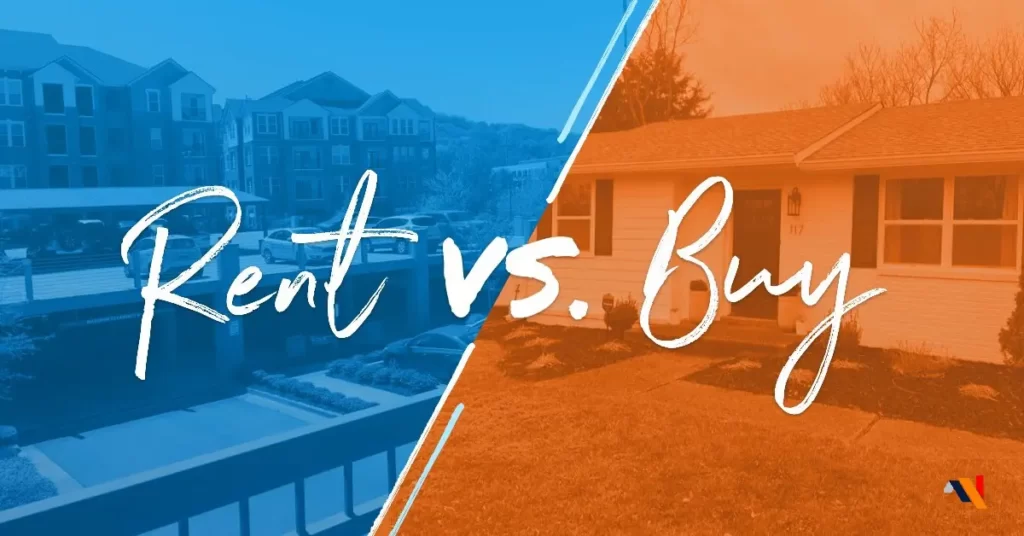
Summary
Renting versus buying a home is a decision that impacts your financial health, lifestyle, and long-term goals. While owning property is often considered a step toward financial security, there are cases when renting can be more beneficial. Knowclick Media explores situations where renting can outweigh buying, covering key considerations such as financial flexibility, cost comparison, housing market trends, maintenance responsibilities, and tax implications.
Smart Financial Choices for Flexibility and Savings in Real Estate
Choosing between renting and buying a home is one of the most important financial decisions you’ll make. Homeownership has long been associated with stability and investment, but today, renting offers benefits that sometimes outweigh the perks of buying. Factors like rising property prices, fluctuating interest rates, and economic uncertainty mean that renting may, in certain scenarios, offer more financial and lifestyle advantages. Let’s explore when renting makes better financial sense than buying a property.
1. Financial Flexibility and Liquidity
One of the strongest reasons for renting is the financial flexibility it offers. When you rent, you avoid the large down payment and closing costs associated with purchasing a home. This upfront capital can instead be directed towards other investments, savings, or financial goals.
Renting also means you are less tied to a single investment. If market conditions or your financial circumstances change, moving out of a rental is much easier than selling a home, which may require time, effort, and additional costs. The liquidity you maintain by renting can be particularly valuable during economic uncertainty, allowing you to keep more of your funds accessible.
2. Cost Comparison: Rent Payments vs. Mortgage Payments
Monthly costs are often lower for renters than for homeowners, especially when factoring in not only mortgage payments but also property taxes, homeowners’ insurance, and maintenance expenses. Although mortgage payments contribute to building equity, they often come at a significantly higher monthly cost than rent.
Renters typically avoid these additional costs, which can free up more funds for other financial investments. Furthermore, interest rates can fluctuate, increasing the total monthly expense for buyers, whereas rent is often fixed for the lease term, offering a stable monthly cost.
3. Market Trends and Economic Volatility
The housing market has seen significant fluctuations in recent years, making it a less predictable investment for potential homeowners. For renters, economic downturns or drops in property value do not directly impact their financial stability. Renting provides the flexibility to adapt to market changes without being tied to a property that might decrease in value.
In a high-interest-rate environment, the cost of homeownership can surge, especially for those reliant on financing. Renters have the advantage of not being directly affected by interest rate hikes, which often lead to higher mortgage payments and, potentially, negative equity in real estate investments.
4. Avoiding Maintenance Costs and Responsibilities
Maintenance and repair costs are a major consideration when buying a home. From roofing to plumbing, homeowners are responsible for covering and managing upkeep. Renting, however, shifts this burden to the landlord. While property management fees might cover certain maintenance needs for homeowners, most repairs still fall on the property owner’s shoulders, sometimes leading to significant unexpected expenses.
Renters benefit from predictable costs with maintenance and repairs covered by the landlord. This financial predictability can be particularly appealing for those prioritizing a low-hassle lifestyle or looking to reduce exposure to unpredictable expenses.
5. Lifestyle Flexibility and Mobility
For those with jobs requiring frequent relocation or simply seeking a flexible lifestyle, renting offers mobility that ownership does not. Buying and selling a property is a time-consuming process that involves transaction costs and potential capital loss in short-term ownership. By renting, individuals retain the flexibility to move for new job opportunities, life changes, or personal preferences without the burden of selling a home.
Renting is often ideal for those who prefer urban areas or high-demand regions where real estate prices are high. Living in premium neighborhoods may be financially viable through renting, while purchasing property in these areas may be out of reach.
6. Tax Implications and Incentives
Tax benefits such as the mortgage interest deduction can reduce the cost of homeownership, but these advantages aren’t universal. Not all buyers qualify for tax benefits, and the standard deduction under current tax law often outweighs itemized deductions for many homeowners. In some cases, the financial incentives tied to buying don’t justify the costs, making renting a better choice.
Renters may also avoid certain tax obligations that homeowners face, like property taxes, which can be substantial in some areas. By sidestepping these expenses, renters can keep their tax burden lower, adding to the cost-effectiveness of renting.
7. Investment Potential Beyond Real Estate
By choosing to rent, you free up funds that might otherwise go toward a down payment or mortgage. These freed-up funds can be invested in other areas, potentially yielding higher returns. Diversified investments in stocks, bonds, or retirement accounts may offer greater financial growth over time than the equity built in a home, especially in volatile real estate markets.
When buying a home, much of your investment capital becomes tied up in a single asset, which can carry risk. Renting offers the chance to diversify your portfolio and build wealth through a range of assets, spreading risk and optimizing returns.
Frequently Asked Questions (FAQs)
1. What are the main advantages of renting over buying?
Renting offers flexibility, lower upfront and monthly costs, and freedom from maintenance and property taxes. This makes it a financially attractive option for those who prioritize liquidity and adaptability over long-term property investment.
2. Does renting mean I’m throwing money away?
No. Renting provides housing without tying you to an asset that may not appreciate in value, especially in volatile markets. It allows you to allocate funds toward other investments, potentially earning higher returns elsewhere.
3. When is it better to buy a home?
Buying may be better if you plan to live in the property long-term, desire stability, or want to build equity. It also makes sense if local housing prices are stable and you can afford additional costs like taxes and maintenance.
4. How can I decide if renting or buying is better for my situation?
Assess factors like your financial health, lifestyle goals, career plans, and the real estate market in your area. A renting vs. buying calculator can help estimate the costs for each option over time.
5. Can renting help me save for future homeownership?
Yes. Renting can reduce your monthly housing costs, allowing you to save for a down payment or build an investment portfolio. This flexibility can help you achieve future homeownership goals if desired.
6. Are there tax benefits to renting?
While renters don’t receive tax deductions like mortgage interest, they also avoid property taxes, which can be substantial. Depending on your financial situation, renting can offer indirect tax benefits by reducing your taxable income.
7. What are common pitfalls of homeownership?
Beyond upfront costs, homeowners face maintenance expenses, property taxes, and potential market risks. Homeowners may also lose flexibility and liquidity, limiting their ability to move or adapt to financial changes.
Also Read: How Inflation Influence Rental Income
While homeownership remains an important goal for many, renting can often be a smarter financial choice, providing flexibility, financial security, and fewer responsibilities. The right choice depends on your financial situation, lifestyle, and long-term goals. In a world where real estate markets fluctuate and life circumstances change, the freedom and financial advantages of renting offer an attractive alternative to buying for many people.
For those seeking flexibility, avoiding maintenance expenses, and investing their money in diverse areas, renting can be a financially sound and practical decision. Making the best choice between renting and buying requires a careful assessment of personal needs, market conditions, and financial priorities.





